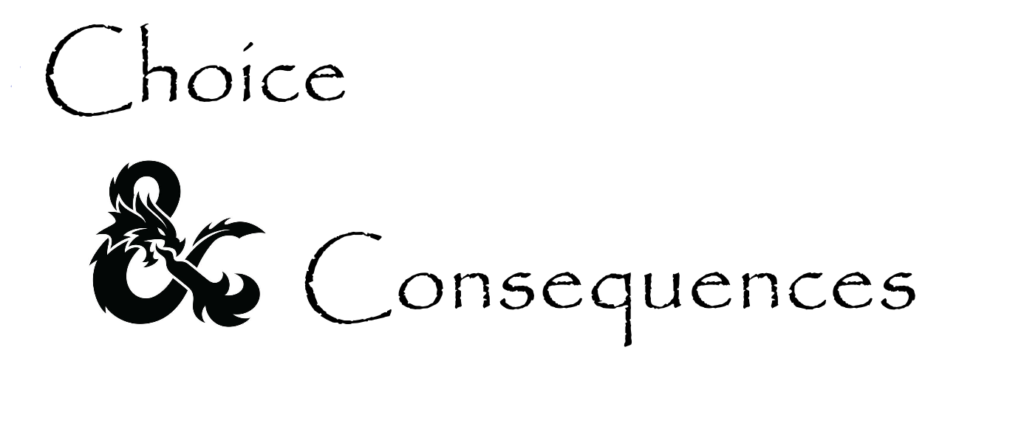
One of my favourite things about roleplaying games is the freedom they provide. Whether it is a video game or a tabletop roleplaying game, I love when players have the opportunity to do what they want within the game world. The reason for that love, is consequences. I enjoy seeing how the world/story is impacted by my (or my players’) choices. It’s these impacts that truly make players feel like their characters are a part of a living world. To that end, player choice in Dungeons and Dragons is a very important part of running an immersive game.
Let’s talk about choices
First, let’s talk about choices in general. Choices exist naturally in roleplaying games. Every time players set out to do something, they make a choice. In video games these choices are sometimes very restrictive, either you do the thing, or you don’t. Oftentimes when it comes to the main story thread, there is only one choice that allows you to progress. Tabletop RPGs are quite a bit more open. The players can choose not to follow the main story threads and create new ones. A lot of that comes down to the comfort of the Dungeon Master, but I’m getting a bit ahead of myself.
Choices in RPGs are like choices in real life, we make them constantly. Much of this is streamlined to keep games flowing, for example, characters do not need to make daily choices about what to wear or what to eat (unless they want to). Players make a plethora of choices, some consciously and some that just happen along the way. The more heavy-handed are obvious; you agree to guard the merchant’s caravan for 5 gold a piece. The more subtle you may not even realize as you play. Consider these situations: you walk by as a guard takes a thief into custody on a busy city street; you change the subject when an NPC asks about the party rogue; you request payment from an NPC in the middle of a busy tavern; you give a gold piece to a beggar on the street. In each case a choice was made. A choice that may be noticed.
This leads us to my favourite part of player choices, the consequences.
Consequences of Player Choices
Consequences of actions are what will make your world feel real. If nothing you do impacts the world around you, then you aren’t going to feel like you are really a part of that world. This is easy with story beats. You fought off the raiders attacking the village of Sagosh, the villagers will be thankful. Perhaps you’ll get paid or receive some other reward. These consequences are intrinsic and natural, but it goes beyond that. In a real, living world, events do not happen in a vacuum, they are linked to other events and places. This leaves open a ton of possibilities such as:
- A bard passing through would certainly be told of your heroics. In the future they may tell stories or sing songs of the “Saviours of Sagosh”.
- A survivor from the raiders, or a relative, seeks revenge. This could be an organized assault, hired assassins, or a long, complicated thread.
- Hearing of their heroics, other towns/villages reach out in search of help.
- The characters learn that those raiders were using their plunder to placate a dragon roosted nearby.
There are endless options, and not all have to lead to anything beyond feeling like the world sees their deeds. Just having NPCs recognize the characters, or mention their actions can be enough to give that feeling.
Smaller actions can have consequences too. Perhaps talking about payment for a job in a busy tavern gets the players jumped in an alleyway. Walking by the guard arresting the thief could lead to a contact not being available later. Acting suspiciously in a conversation could lead to someone being tipped off about your presence. Giving a coin to a beggar could lead to them doing something good for the character in the future.
“Every choice comes with a consequence. Once you make a choice, you must accept responsibility. You cannot escape the consequences of your choices, whether you like them or not.”
Roy T. Bennet
Let the Players See the Threads
As important as all these consequences are, so is the players’ awareness of them. Sometimes, it’s important that we remember that RPGs are a weird combination of books, movies, and games. Having things happening in the background is fine, but if the players never know about it then it’s like it never happened. Imagine in a book if a character you met briefly in chapter 2 dies off page, and the book never mentions it. It may be the author’s canon, but to readers it never happened. This is what it is like if an event occurs and the players don’t know anything about it. So it’s important that they see the impacts of their actions.
Consider the previous scenario with the beggar. Someone in the group gives him a gold piece, he is extremely grateful. Later, the characters are fleeing from the city guards. The grateful beggar opens the gate or distracts a guard, allowing the characters an easier escape. If they never find out about his actions, then all the know is that the guard didn’t see them, or someone left the gate open. So it’s important that there is some evidence of the beggar’s actions, even if just heavy hints.
The Story of Bhulan and Lt. Barlock
In the story of The Collected, my wife plays a devout Aasimar named Bhulan. After a frustrating encounter with a self-proclaimed god, she was frustrated and went looking for a fight. She found a group of guards training/sparring and challenged the one that appeared to be the ranking officer present, Lt. Barlock. After a good scrum, she defeated the guard. What followed began a series of events she could not have predicted. After defeating Barlock, he asked who she was and Bhulan declared herself and her temple.
They were in the desert town of Shanom, firmly ruled over by a sphinx-god who doesn’t allow for the worship of other entities. Barlock warned Bhulan that even as an outsider, she would do well to keep her devotion to herself. Unfortunately, her words carried through too many ears and events were already in motion. Her actions lead to some zealous cultists attacking the party in their sleep and attempting to kidnap Bhulan. Lt. Barlock, inspired by Bhulan’s spirit, had been keeping watch on the inn and tried to save them. As they escaped, he was left behind. Unknown to the players at the time, the cultists had taken him prisoner.
Later Barlock was grievously tortured and used as bait to capture Bhulan. The party saved him but his eyes had been gouged out, and one arm severed. Bhulan was able to restore one of his eyes, but he has remained maimed since.
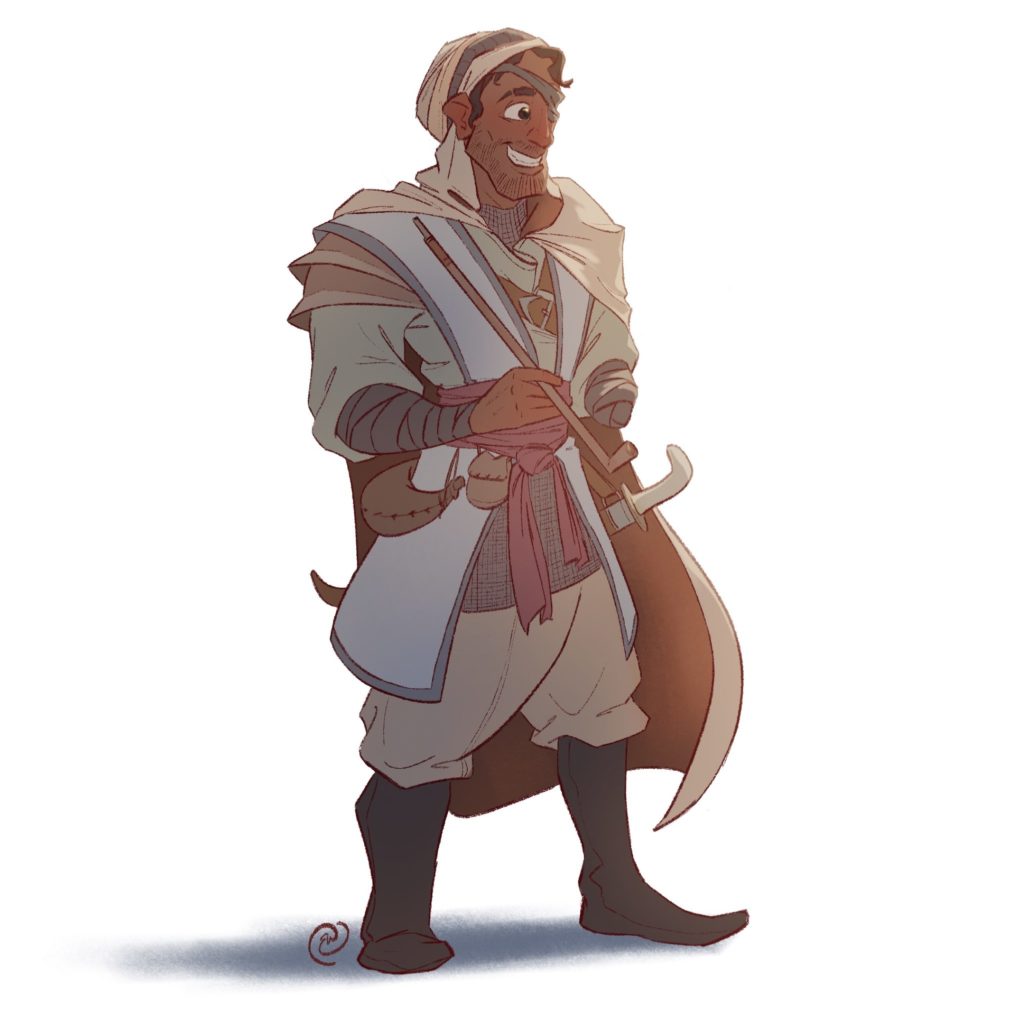
Find a Balance that Works for You
This is a case where the consequences of the players’ actions became a major thread. This clearly doesn’t always need to be the case (as that would be exhausting for players and the DM), but you need to find a balance that works. Most players’ actions will have small, natural consequences; the Kenku, Whistler, fought with the innkeeper about his cooking of eggs, so he refused to cook her breakfast the next day. Little things that breathe life into the world. Some need the big consequences because that is what naturally makes sense in a given scenario.
I am firmly a “less is more” kind of DM. As situations happen, I do my best to consider what the most natural impacts are and go from there. Sometimes those impacts are great, oftentimes they are tiny. I am especially likely to allow them to be significant if they tie into the ongoing story – such as what happened with Bhulan. In the end, find the balance that works for you and your group.
In conclusion, player choice in Dungeons and Dragons is very important and the consequences of those choices should be impactful and natural. What are some of your favourite character impacts from your experiences?
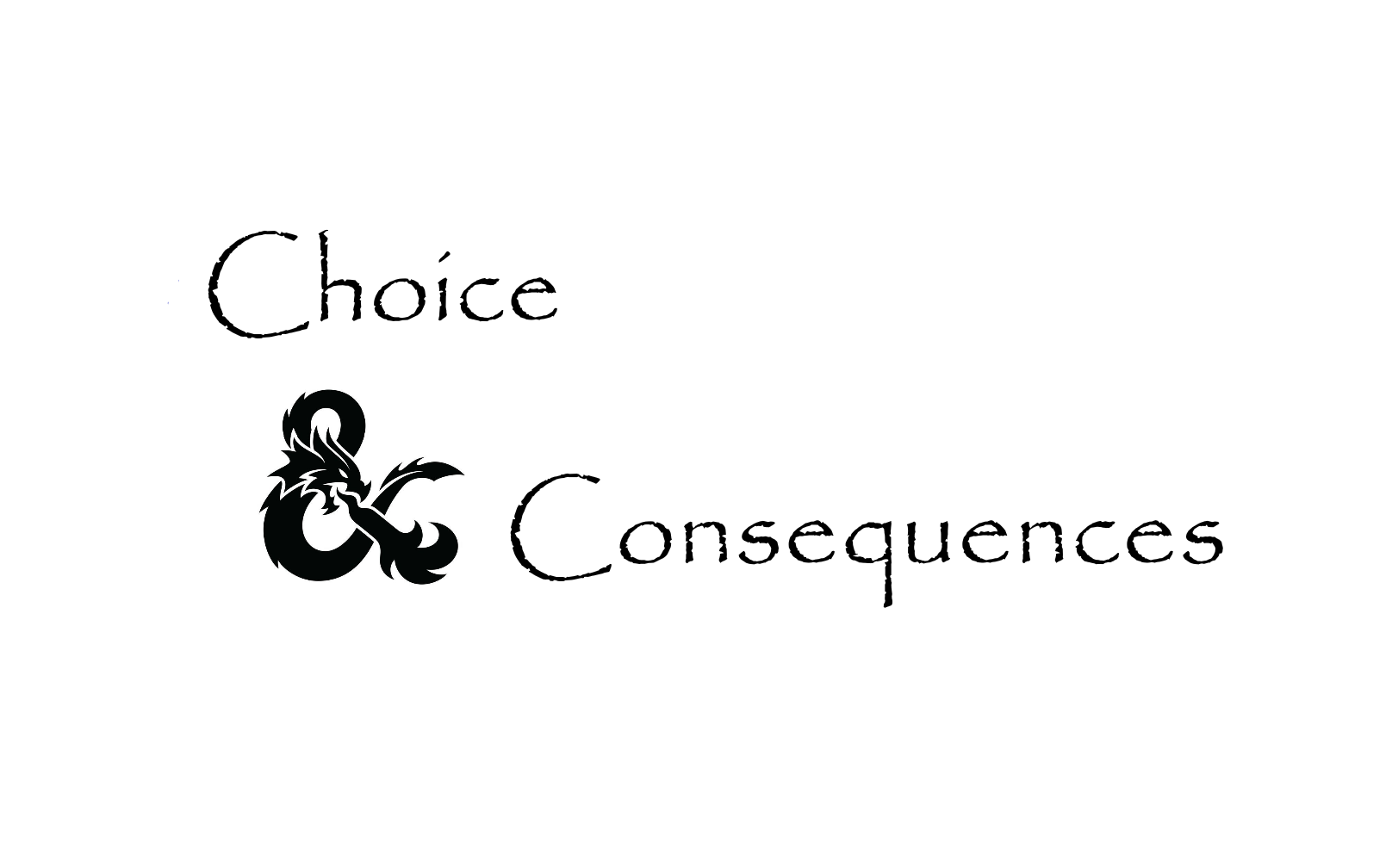

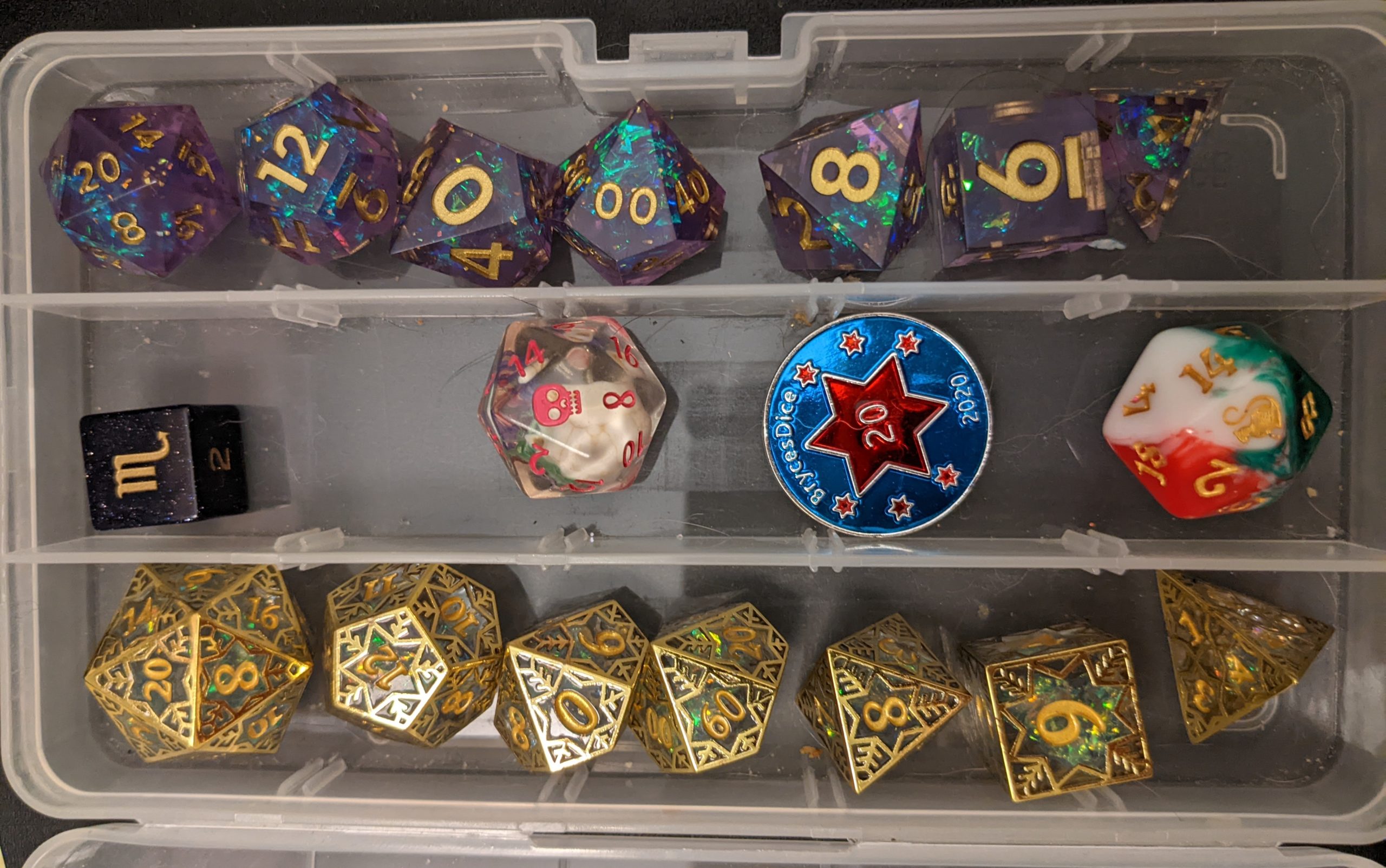
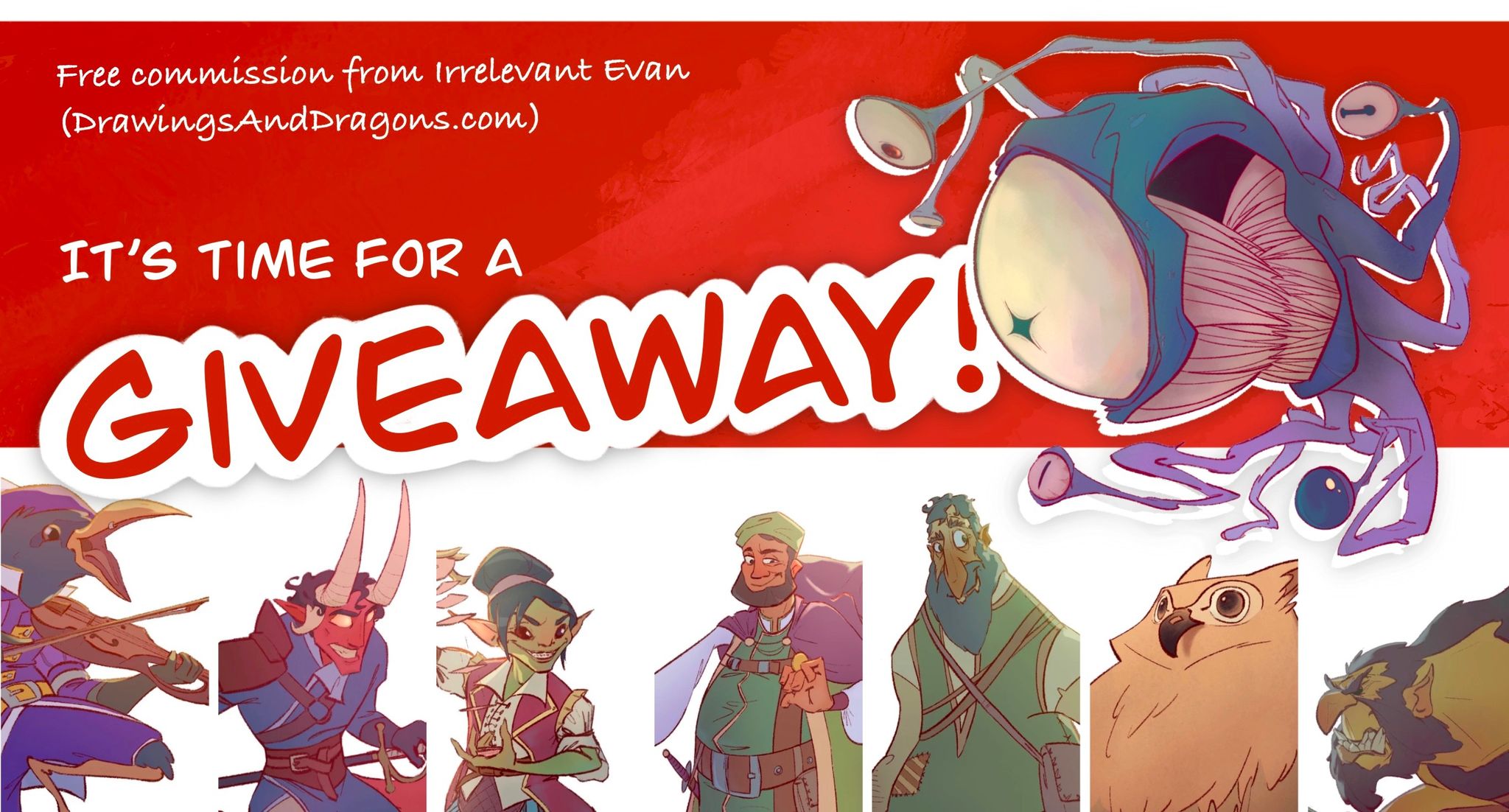
This whole experience was really hard on my young paladin. It was her first experience of serious consequences caused by her brash personality. It took me a while as a player and a character to come to terms with it (though I am still a little bitter). BUT it also caused character development for my character. So consequences not only change the world but can change your characters.